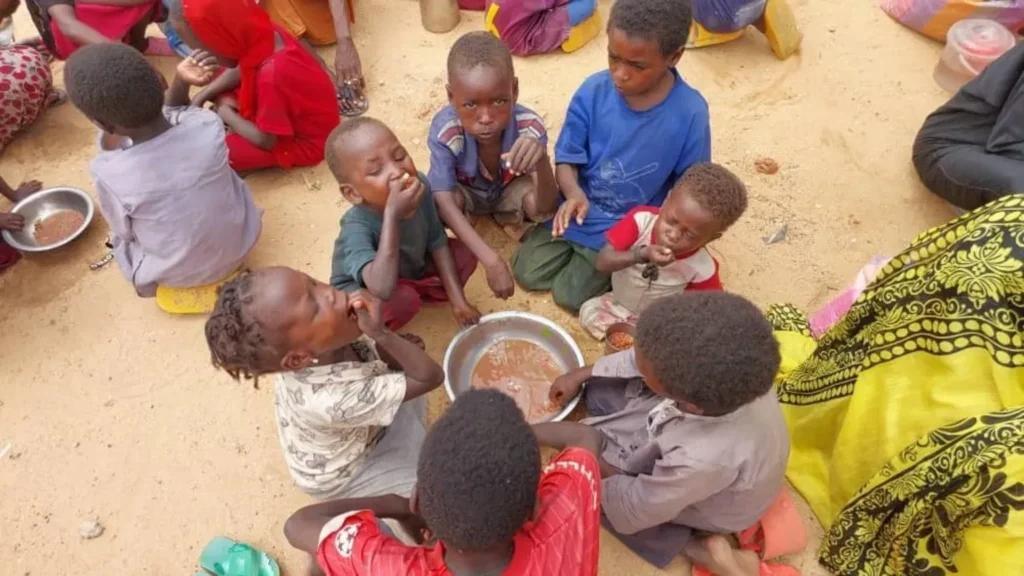Sudan’s grassroots network of community kitchens—often the only source of food for millions trapped by civil war—is on the brink of collapse, according to a new report by Islamic Relief. These kitchens, run by volunteers and fueled by diaspora donations, are now battling exhaustion, shortages, and insecurity.
A Crisis Within a Crisis
With over 24 million people facing acute food shortages, the UN has called Sudan the world’s largest humanitarian crisis. In besieged cities like el-Fasher and Kadugli, famine conditions are already confirmed. In el-Fasher, kitchens were reduced to serving animal fodder before the city fell to the RSF last week.

“The Uncertainty Is Worse Than Nothing”
Volunteers describe going to bed unsure if they’ll be able to cook the next day. USAID funding cuts earlier this year left the kitchens reliant on unstable diaspora support. “It was like someone cut a rope we were holding on to,” one volunteer said.
Obstruction and Danger
Aid deliveries are routinely blocked by both sides of the conflict. Volunteers risk looting, arrest, and even death as they navigate checkpoints with mobile money and supplies. In some areas, they’ve become targets simply for trying to feed their communities.
A Model Under Threat
The Emergency Response Rooms—local networks supporting the kitchens—have been hailed as a model for UN reform and were even nominated for a Nobel Prize. But after nearly three years, burnout is setting in. “We are all getting poorer and angrier,” said a volunteer in Khartoum.
As Sudan’s war grinds on, these kitchens remain a fragile thread holding communities together. Without urgent support, that thread may soon snap.

